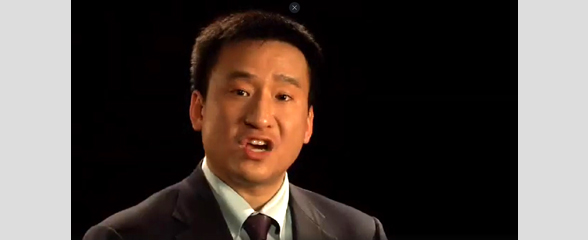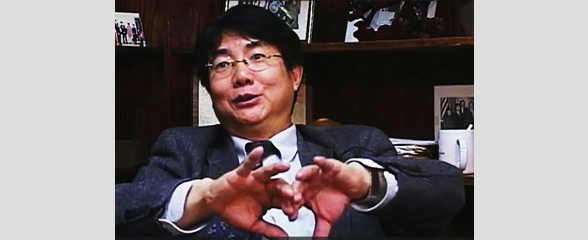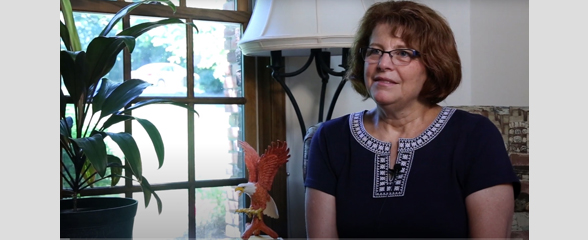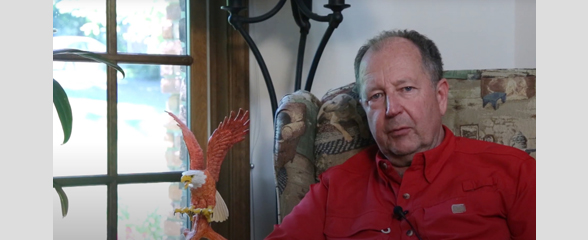Racism

2008.041.011 Oral History Interview with Frank Wu
Frank Wu is a civil rights lawyer, professor, and award-winning author of Yellow: Race in America Beyond Black and White. His book has become an essential text in Asian American Studies. He currently teaches law at Howard University and frequently lectures on civil rights law. “When I was a kid growing up, the last thing I ever would have wanted to do was talk about or think about race, ethnicity,†he recalls in this interview.
Frank grew up in Detroit, Michigan in the 1970s. His dad was an engineer at Ford Motor Company, which relied heavily on Asian workers for research, development and product design. He briefly discusses his experience of childhood cruelty on the playgrounds, and how the especially tough times in Detroit made it one of the hardest places in America to have an Asian face during the recession. He discusses how the confrontation leading up to the brutal murder of Vincent Chin in his city and how he or his cousin could have been the victim of this racial scapegoating and violence. It made him realize how words had the powerful to do damage but also to change the world. He reflects on dominant image of Asian Americans as the model minority myth, how it means that they should be submissive, passive, and deferential, and how it was first used to contrast Asian Americans with African Americans and other people of color. In his view, Asian American communities have generally not seen the importance of vigorous participation in democracy and the importance of making a fuss. His experiences as the first Asian American law professor at Howard University, the nation leading historically black institution, made Wu realize the importance of supporting other groups and sharing a common cause. Advancing civil rights, he believes, goes beyond self-interest and involves seeing that there are principles involved that affect others.

2014.036.014 Oral History Interview with David Chen July 10, 2003
During the interview, David Chen discusses his experience as a Chinese American activist and director of the Chinese-American Planning Council (CPC), and his theory of activism. When Chen was younger, he rarely spoke. He would always wait for someone else to say the right thing, to which he would then agree. One time, as a younger student, he was forced to present a project because two of his partners did not show up. One of his classmates expressed how well-spoken he was and at that moment, Chen realized that his voice could be heard. Chen believes that in order to be an activist for peace and justice, one must see the bigger picture. Effective activism should start with institutions because that is how change can be enacted. He believes that anyone can be an activist as long as they talk, remember, observe, and are skeptical of organizations. He states that while spontaneous change comes from the bottom, sustaining change comes from the top, more specifically, from organizations. Chen joined the Organization of Chinese Americans in order to advocate for what he wanted to stand for and speak freely on those subjects. However, he also believes that a successful organizer does not talk too much because activism is about observing the smaller issues. As an activist, he believes that trust must be gained from individuals. Chen agrees that the Asian American rights movement was inspired by the Civil Rights Movement. Overall, he believes that society as a whole has become more willing to change and hopes that individuals, especially young activists, continue to act, give voice, and intellectualize.

2018.034.004 Oral History Interview with Cindy Lobach
This oral history focuses on People of the Golden Vision’s treasurer and founding member Cindy Lobach, as she reflects on the role of the paper sculptures in the Golden Venture detainees’ eventual release. She discusses how the sculptures have ended up in many unexpected places, which speaks to their lasting cultural impact. Lobach reflects on how the detainment of the Golden Venture refugees and their beautiful artwork changed their supporters and the people of York. She also discusses how the creation of these paper sculptures gave the detainees hope for a better future. Lobach describes these refugees’ difficulties adapting to York and the racist attitudes many people have towards immigrants. She hopes that visitors to the exhibit will be come to understand that many immigrants who come to the United States undocumented do so because they are fleeing persecution and there is no other choice for them. She hopes the exhibit will show the potential of art to change lives.

2018.034.005 Oral History Interview with Jeff Lobach July 9, 2017
This oral history focuses on Jeff Lobach, who was President of the Pennsylvania Bar Association at the time of the Golden Venture. He organized the lawyers who were trained for the purpose of defending the detainees of the Golden Venture. He speaks about his experience as a lawyer at the time, and how he faced frustrating rulings and resistance from the Justice Department. He worked to spread awareness about the Golden Venture at the time and discusses the significance of art and the sculptures in the movement. He also talks about how his personal life has been enriched by each of the asylum seekers whom he has defended as a lawyer.